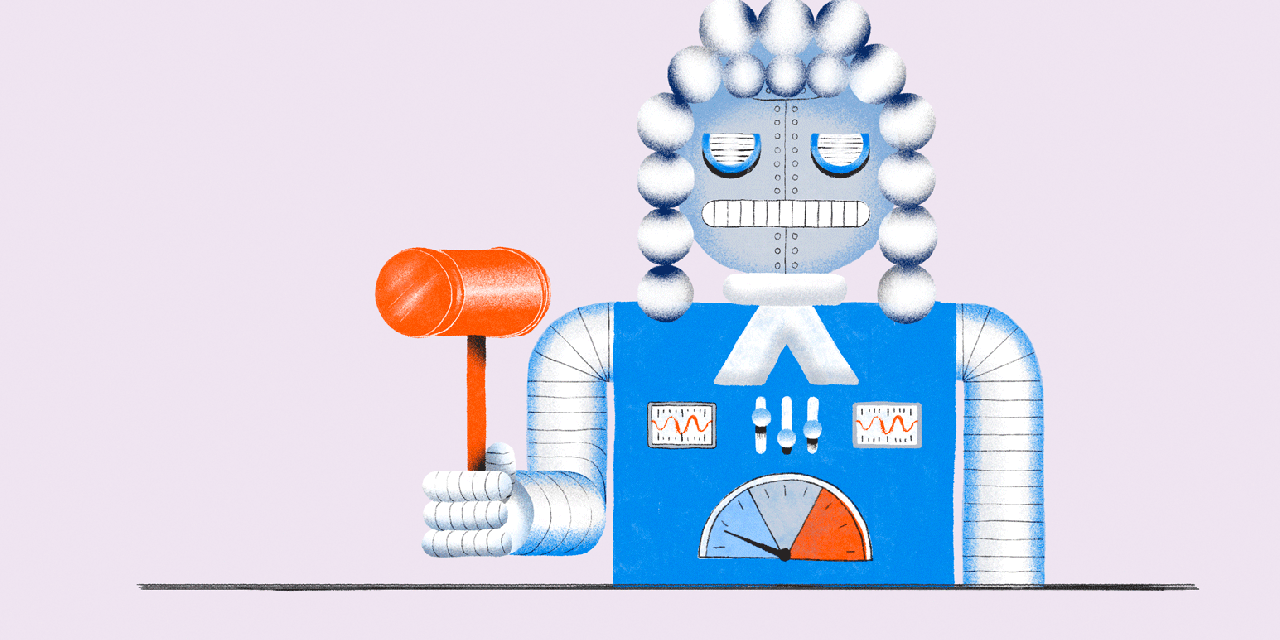How AI promises to transform the legal profession

Like other industries, the legal profession promises to be impacted by the rise of artificial intelligence — but don’t expect it to result in armies of lawyers suddenly on the unemployment line.
“AI can definitely help in terms of productivity — if you’re in a large case where there are thousands and thousands of pages of evidence that need to be reviewed and documented, AI is perfect for that,” said Steven Keith Platt, a lawyer turned academic who has become one of law’s leading experts in AI.
The legal industry was pinpointed as one of the areas most prone to automation in a recent Goldman Sachs report, which drew global attention due to its alarming prediction that 300 million jobs would be automated over the next decade. A total 44% of legal jobs will be at risk, the report stated.
But while many articles have emerged arguing that AI will radically remake the legal industry, don’t expect the worst, said Platt, director of analytics and a lecturer at Loyola University in Chicago. “The concept of replacing people just illustrates a total lack of understanding of what AI really is and is a fixation with the term ‘artificial,’ and particularly ‘intelligence’ — a lot of people don’t really understand the context of that,” he said, adding, “It’s an amazing tool, but to go to as far as to say it’s going to replace people, I think, is headline-grabbing crap.”
Other lawyers seem largely divided on just how much impact AI will have on their business.
“AI has revealed that a lot of the daily tasks that lawyers engage in are, well, not that special or unique — boilerplate is reproducible by design, and much of the text generation and research that lawyers engage in can be effectively mimicked by software,” said Sean O’Brien, who lectures on cybersecurity at Yale Law School and is the founder its Privacy Lab. “Contracts, letters and emails are just what get professionals through the day and allow people and organizations to do business — there’s no reason to pretend there’s a dearth of originality or creativity where there is none, and there’s still plenty of amazing and innovative work by lawyers that requires a very human touch.”
Calling AI and programs like Casetext and CoCounsel that are targeted to the profession a “game changer,” Laura Wasser, a family law attorney in Los Angeles, noted that while “there’s always the fear of job displacement or losing the human touch … I see AI as a powerful ally that complements our expertise.”
She added, “When you look at AI tech, it’s not just about making things faster or cheaper — it’s about elevating the quality of legal services we provide.” With AI handling the more routine tasks, it frees up lawyers focus on strategy, negotiation and advocating clients, as she sees it.
Minwan Ahn, an immigration lawyer in Philadelphia, believes AI will revolutionize the legal profession in several ways.
Besides enhanced efficiency, he also pointed to improved outcomes, explaining, “Machine learning algorithms can predict case outcomes based on historical data, helping lawyers devise winning strategies tailored to their clients’ specific needs.” In addition, the tech could pave the way for whole new business models “that prioritize fixed-fee arrangements or subscription-based services over traditional hourly billing structures,” he added.
Finally, AI stands to provide greater access to justice, according to Ahn. “By reducing costs and increasing efficiency, AI can help bridge the gap between those who can afford quality legal representation and those who cannot,” he said.
Generative AI has significant potential to overhaul contract drafting and negotiation processes, which Evisort, a contract management platform, has been exploring in its AI labs, according to the company’s general counsel Margaret K. Minister.
Evisort’s technology uses large language models to draft, redline and negotiate contracts automatically. The program has been trained on more than 1 billion contract data points, meaning its AI can work even on complex, nuanced documents, in accordance with a company’s risk tolerance and preferred legal language.
The app “is only the beginning,” Minister said, with generative AI eventually having the ability to draw up whole new contract templates, negotiate — with or without supervision — on behalf of companies, and more.
There are drawbacks to AI’s growing role in the legal industry.
Joshua Rogala, a criminal defense attorney in Winnipeg, Manitoba, noted that the adoption of AI in the profession, while promising, also raises ethical and regulatory considerations, including ensuring transparency, fairness and accountability in the use of such systems.
“Law firms need to be mindful of ethical and legal implications when using AI and ensure that it complies with applicable laws and regulations,” Rogala said.


